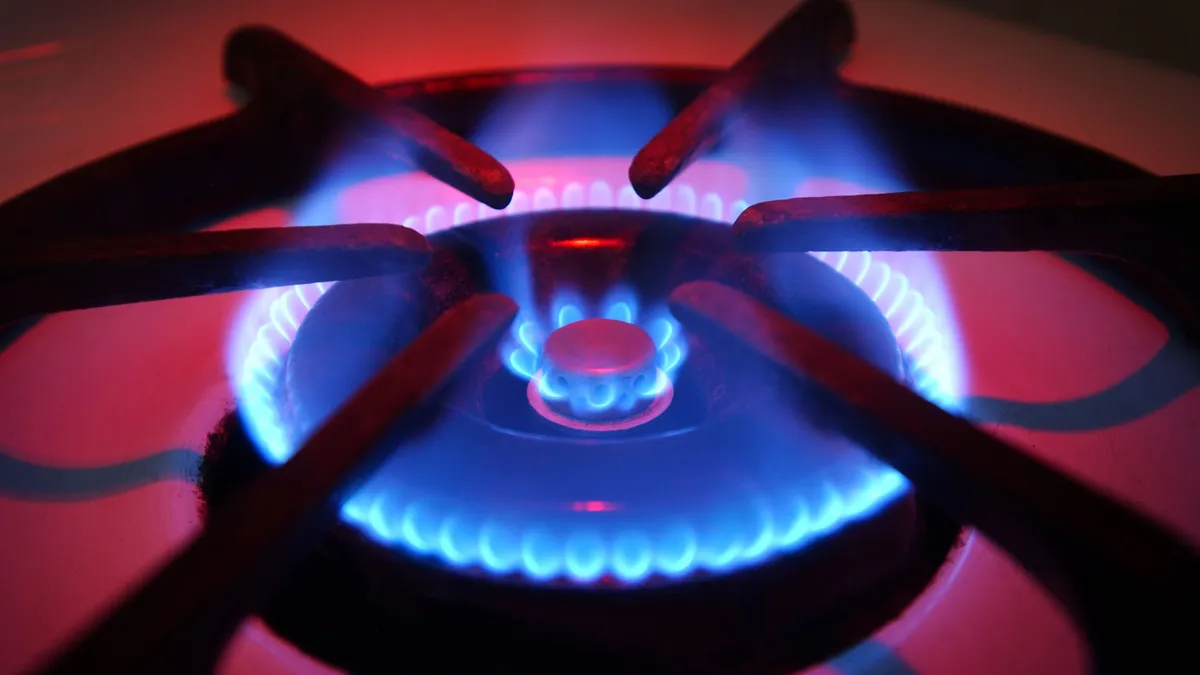The following is a contributed article by Seth Mullendore, president and executive director at Clean Energy Group.
Before closing out 2021, New York City, the most populous city in the nation, made headlines as Mayor Bill de Blasio signed a bill into law banning gas combustion in new buildings. The same gas ban again made headlines this month, this time in the form of a statewide ban proposed as part of Governor Kathy Hochul’s 2022 State of the State Address. That means no new gas stoves, no new gas furnaces, and no new gas water heaters.
Two additional significant developments garnered less national attention — an air permit was denied for a large gas power plant proposed in Queens and the owner of multiple gas plants in New York City ended its bid to repower one of its facilities in Brooklyn. The demise of these two projects collectively eliminates the development of more than a gigawatt of new gas in New York City.
The beginning of the end for these projects was twofold.
First, in July 2019, New York State enacted its groundbreaking Climate Leadership and Community Protection Act (CLCPA). Among other things, the CLCPA mandates a zero-emission electric grid for New York by 2040.
Second, in December 2019, the New York State Department of Environmental Conservation (DEC) adopted a final rule establishing more stringent limits on nitrogen oxides (NOx) emitted by simple cycle and combustion turbine power plants across the state. These limits, set to ramp down in 2023 and 2025, directly impact the continued operation of the state’s oldest power plants, including the bulk of aging gas peaker plants operating in New York City. Facing noncompliance with the new emission rule, the owners of the 558-megawatt Astoria Gas Turbine peaker plant in Queens and the 640-megawatt Gowanus peaker plant in Brooklyn, both of which were built in the early 1970s, each submitted plans to repower their facilities with new gas turbines.
NRG’s 437-megawatt Astoria Replacement Project was the first of the two projects to fall. NRG billed the proposed gas plant as a “lower emission” alternative to the old turbines being forced into retirement. The company also attempted to sell the repowering project as a climate-friendly solution by claiming the turbines would enable more renewable generation and making unfounded promises to switch the plant to green hydrogen combustion in the future.
The replacement project was challenged by the PEAK Coalition (New York City Environmental Justice Alliance, UPROSE, THE POINT CDC, New York Lawyers for the Public Interest, and Clean Energy Group), along with Earthjustice, Sierra Club and Chhaya CDC. The organizations submitted joint comments to the New York State Department of Environmental Conservation (DEC) in opposition to NRG’s draft air permit application and environmental impact statement. The comments detail the many ways in which the proposed gas plant is inconsistent with CLCPA emissions mandates and highlight disproportionate harm the project would have on disadvantaged and overburdened communities, again in violation of the CLCPA.
DEC agreed on all counts. In October 2021, DEC ruled that NRG's proposed gas plant was not compliant with CLCPA’s zero-emission requirement and denied the project’s Title V Air Permit. While NRG is planning to appeal the decision, the denial effectively halts the Astoria Replacement Project and removes the threat of subjecting environmental justice communities in Astoria, Queens and nearby neighborhoods to decades of additional pollution. Along with stopping NRG’s proposed gas plant, the ruling established a precedent for every polluting peaker plant that will be impacted by the NOx emissions limits set to take effect next year, making it clear that new gas is not an acceptable solution.
Less than two months later, on December 16, Eastern Generation, an affiliate of the private equity firm ArcLight, announced that it would be withdrawing its Article 10 application to repower the 640-megawatt Gowanus peaker plant with new gas turbines. Instead, the company is pivoting to pursue the development of energy storage at the site of the half-century-old peaker in Sunset Park, Brooklyn. Eastern Generation plans to shut down the Gowanus plant and nearby 352-megawatt Narrows peaker as soon as November 2022. Along with energy storage, Eastern Generation is in the process of engaging clean energy developers to repurpose its fossil fuel assets in New York City to facilitate the transmission of gigawatts of planned offshore wind energy.
These policies, particularly the CLCPA, were developed with the help of advocacy groups like the PEAK Coalition, who published reports on the disproportionate harms of New York City's fossil fuel infrastructure.
The victories in New York City are important for communities everywhere. There are more than 1,000 gas peaker plants scattered across the United States and utilities are continuing to support the buildout of new gas plants despite the dire threat of climate change and severe health impacts on surrounding communities. The majority of peakers are located near population centers, often in low-income communities and communities of color. These environmental justice disparities are beginning to gain federal attention, as reflected in a letter issued by House Oversight Committee Chair Carolyn Maloney, Rep. Alexandria Ocasio-Cortez, and Rep. Yvette Clarke that calls on the Government Accountability Office to investigate the harmful effects of peaker plants on communities.
The work being done in New York City is establishing a blueprint for how communities can fight back against gas power plants in their backyards, establishing a strategy to permanently retire these inefficient, polluting, fossil resources and replace them with sustainable clean energy solutions.






















